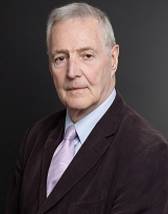A Sigh of Relief from the Allies: But Questions for the Future Will Be a Lot Harder As a Result
As leaders celebrate an Obama victory across European capitals, they should also be prepared to deal with a hard-faced man under pressure who will feel he has the right to expect much more from European partners.
Professor Michael Clarke, Director, Royal United Services Institute
America’s European allies will be relieved that the US election is now over and they can begin to engage with an incoming Administration team which knows who will be in place after January 2009. Now they can react to the Bush Administration as the lame duck it has, in reality, been for most of the last eighteen months and shift their sights to a new beginning in transatlantic relations. The French Presidency of the European Union has already crafted a letter to the election winner calling for a new partnership between Europe and the United States.
There is relief, too, that President-Elect Obama offers a leadership for the times; a literate, intelligent man who seems to understand the greater subtleties of twenty-first century international power, who has tapped into the emergent grass roots middle class orientation that exists among the US electorate, and who is more instinctively in tune with the social democratic instincts of European politics. All this, we know.
What we do not know is how his style in leadership will play out against the daunting agenda of security policy challenges that the transatlantic partners face in the coming years. Almost certainly the leaderships in Russia and Iran will make initial statements of engagement with this post-Bush President; but they will test him. They will seek to establish the limits of US tolerance in 2009-10. Already, President Medvedev has announced that his country would place a short-range missile system designed to carry conventional warheads in Russia's exclave of Kaliningrad, wedged between Poland and Lithuania.
The North Korean leadership, beset with its own internal problems, may, in effect, do the same. So will the Al-Qa’ida core organisation, for whom the end of the Bush Administration marks the passing of a very helpful enemy.
All of these pressures may push President Obama, like Democratic liberal Presidents Clinton and Kennedy before him, into tough stances and confrontations around the global scene. Kennedy was confrontational over Cuba and Berlin, and aggressive on the build-up in Vietnam. Clinton was confrontational in the later stages of Bosnia and in the Kosovo crisis, and was aggressive in his reaction to the 1998 Al-Qa’ida embassy bombings in Africa. It will be a pleasant surprise if President Obama is not pushed towards comparable stances in the first two years of his Administration.
Above all, President-Elect Obama has committed himself to a new emphasis on operations in Afghanistan. The Europeans are right to require from the US much greater strategic coherence over the whole operation. Five years of genuine stabilisation operations were lost in Afghanistan and picking up the baton in 2006 was a much bigger task as a result. Counter-terrorist operations – predominantly run by the CIA – are undermining anti-Taliban stabilisation operations, which are themselves run by the US Army and US Marine Corps – and are increasingly destabilising Pakistan with increasing attacks in the border areas. The US military is in danger of defeating itself in Afghanistan while the governmental and civil programmes vital to a political victory become ever more introverted and ineffectual, centred only around the failing authority of the Kabul government.
In this situation, the European allies are generally fearful of deeper involvement. But this is the war – yes, war – that NATO has taken on. It is the war it has to fight, not the one it would prefer to fight. Greater US coherence about its aims and its methods would go a long way to establishing clear leadership for the Western Alliance that some of the Europeans would then find difficulty in resisting. And a President Obama, with General David Petreaus as his CENTCOM Commander, may be able to provide this.
But the counter-point is that a US leadership over Afghanistan of this sort would make some very big demands of its European allies. The ‘national caveats’ under which many present European forces operate would become much harder to defend. The reluctance to deploy NATO helicopters and AWACS to Afghanistan would be a bigger scandal than it already is. More troops, and aid money, will almost certainly be required. NATO and EU effectiveness in Afghanistan would be regarded as a necessary pre-condition to their effectiveness in dealing with a resurgent Russia insofar as it challenges our interests in Europe.
The European allies may be quietly celebrating today and will begin their undignified jostling for diplomatic position with the incoming President. But they should also be prepared to deal with a hard-faced man under pressure who will feel he has the right to expect much more from European partners over the coming two years.
WRITTEN BY
Professor Michael Clarke
RUSI Distinguished Fellow, Military Sciences

